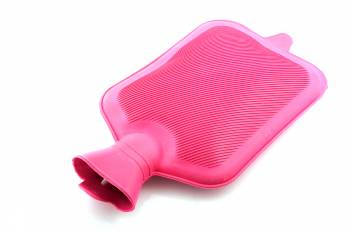Why Do Some Women Have Painful Menstruation?
It’s common knowledge that during a woman’s period, she’s going through a lot of changes. It’s understandable therefore that some women don’t look forward to their monthly periods especially those who experience painful cramps.

Understanding Dysmenorrhea
Some women feel irritability, bloating and fatigue—and that’s normal! The body after all is shedding the lining of the uterus, called endometrium, by letting the waste pass through the cervix and finally out the vagina. Pain is felt because the uterine is contracting.
Painful menstruation, or dysmenorrhea, causes cramps in the lower abdomen. It is sometimes accompanied by other symptoms like back and leg pain, diarrhea or constipation, nausea and vomiting, and headache. In some rare cases, a woman experiences period migraine. When the body releases prostaglandins, the woman may have diarrhea and nausea. These chemicals are responsible for increasing the contractions necessary to release the blood. No wonder most women experience intense pain during the first two days because that’s when the levels are much higher.
There are two types of the dysmenorrhea. In primary dysmenorrhea, the pain can start as early as two days before the period and can last for a total of up to four days. Prostaglandin levels are high or imbalanced. The contractions become painful because it cuts off the oxygen to the uterine muscle.
Secondary dysmenorrhea is caused by other medical conditions.

Causes of Dysmenorrhea
The following are the known causes of dysmenorrhea:
1. Endometriosis is a condition where the endometrium is growing outside the uterus.
2. Menorrhagia is an irregular prolonged period.
3. Adenomyosis is a condition where the endometrium grows within the uterine muscle. In this condition, monthly periods and sexual intercourse can be painful.
4. Uterine fibroids are not harmful, but they can increase the pain and the bleeding.
5. Pelvic inflammatory disease is usually caused by sexually-transmitted diseases and must be treated because it can cause infertility.
6. Other women also have structure anomalies in the uterus that don’t develop fully.
Managing the Pain
Weeks before your next period, you should exercise regularly. Your doctor will also advise you to manage your weight if you’re overweight.
During your period, over-the-counter painkillers should work on primary dysmenorrhea. Painkillers are quite harmless as long as you follow the instructions on the label. Lie down and keep your legs raised then apply warm compress on the abdomen area. You can also lie down on your side and bend your knees. Wear loose clothing and try to relax.

If painkillers don’t work anymore, consult your doctor for other prescription drugs. Pain that lasts for more than three days also isn’t normal. The doctor will check for other conditions that may be causing the pain.

Hi, Stranger! Leave Your Comment...